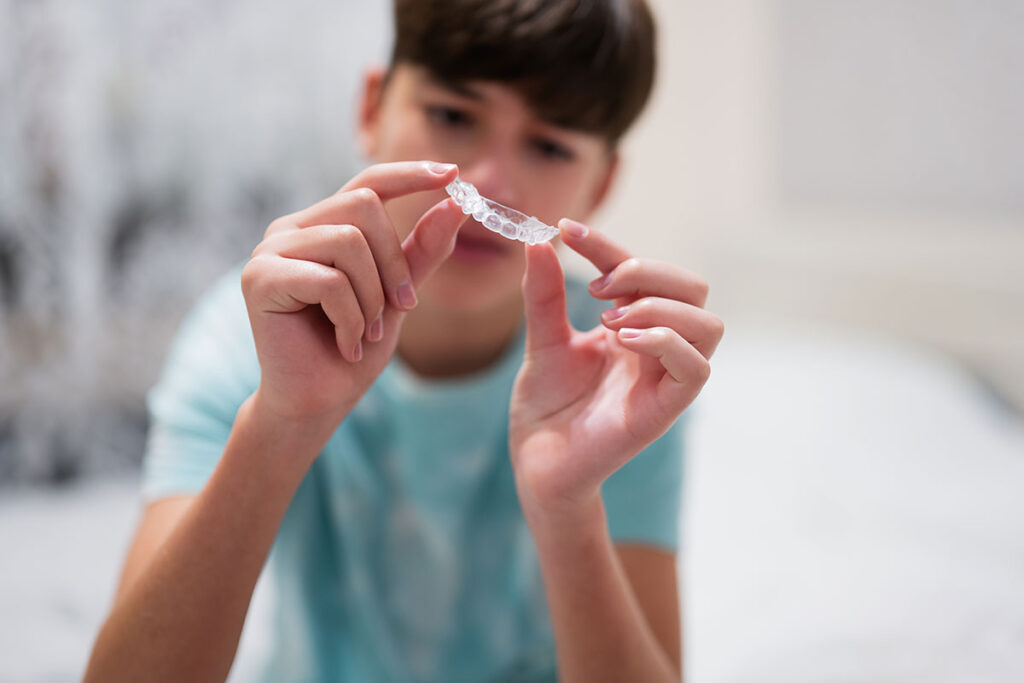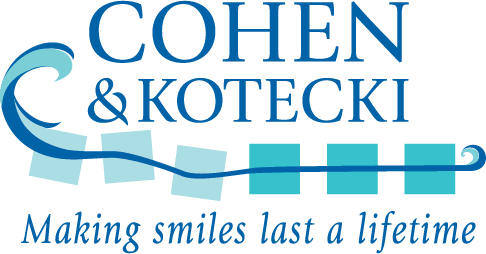Invisalign vs Braces – What’s Better?

If you’re thinking about straightening your teeth, you might be stuck trying to decide between Invisalign and traditional braces. Both options can help give you a straighter smile, but they work in different ways and come with their own advantages and disadvantages. To make the best choice, you’ll need to understand what each option involves. Let’s break it down below!
Advantages of Invisalign
There are several advantages to Invisalign. Let’s take a look at why it’s such a popular option for both teens and adults below:
Nearly Invisible Appearance
One of the main perks of Invisalign is that the clear aligners are nearly invisible. With Invisalign, you won’t have to worry about metal brackets and wires showing up in photos or drawing attention to your smile.
Easy to Remove for Meals
Unlike braces, which stay attached to your teeth until the treatment is complete, Invisalign aligners are removable. You take them out when you eat, which means you don’t have to worry about avoiding certain foods. For people who love sticky, crunchy, or chewy snacks, this can be a huge advantage.
Simple Oral Hygiene Routine
Since you can take your Invisalign aligners out when you brush and floss your teeth, it’ll be easier to keep up with your usual oral hygiene routine. With braces, brushing and flossing can be a little more challenging because you have to navigate around brackets and wires.
Fewer Visits to the Orthodontist
Invisalign generally requires fewer trips to the orthodontist. You’ll switch to a new set of aligners about every two weeks as your teeth shift. Since you don’t need as many adjustments, you may only need to see your orthodontist every six to eight weeks.
Disadvantages of Invisalign
Of course, Invisalign doesn’t come without its disadvantages (just like braces). Let’s take a look at some of the cons below so that you can make an informed decision about whether Invisalign is right for you:
Requires Discipline
Being able to remove your aligners can also be a downside. Invisalign must be worn for 20-22 hours a day to be effective, so if you forget to put them back in after eating or brushing, it can slow down your progress.
Can Be Inconvenient at Times
Since you need to take out your aligners before eating or drinking anything other than water, and brush your teeth before putting them back in, this can be a bit inconvenient — especially when you’re out with friends. Food can also get stuck in the aligners if you don’t brush thoroughly.
Cost
Depending on where you’re getting treatment, Invisalign can cost about the same or sometimes more than braces. The technology and materials used for the aligners add to the cost, so you may want to check with your orthodontist about pricing and payment options.
Advantages of Braces
Now, let’s talk about braces. Braces are a much older orthodontic treatment method, but this method has still evolved over time. Here are the specific benefits of braces:
Works for All Types of Cases
Braces are a reliable option for correcting several different dental issues. With braces, orthodontists can address problems with crowding, spacing, and alignment more effectively than with Invisalign.
Consistent Results
Braces use brackets and wires to apply steady pressure to each tooth, so they’re very effective at moving teeth into the right positions. They can often achieve results faster in certain situations, especially when closing gaps or rotating teeth.
Faster Treatment Time in Some Cases
In some cases, braces can work faster than Invisalign. Braces provide continuous force on the teeth, which can lead to quicker results in more complicated cases. Talk to your orthodontist about how long each option is expected to take for your specific situation.
Disadvantages of Braces
Everyone knows that braces can be uncomfortable. Some people also don’t like the appearance of braces, which is why they may choose to opt for Invisalign instead. Here are some disadvantages of braces to keep in mind:
Noticeable Appearance
One of the main reasons people avoid braces is because of how visible they are. Traditional metal braces, in particular, can make some people feel self-conscious, especially in social settings. While there are more discreet options available (like ceramic braces), they’re still not as invisible as Invisalign.
Harder to Keep Clean
Keeping your teeth clean with braces can be tricky. Food can easily get stuck around the brackets and wires, so you’ll need to take extra care when brushing and flossing. If you don’t clean your teeth thoroughly, plaque can build up — which can lead to staining or even tooth decay.
Food Restrictions
When you have braces, certain foods are off-limits. Hard or sticky foods, like popcorn, gum, and chewy candy, can cause damage to your braces. Breaking a bracket or wire can extend your treatment time, so it’s important to stick to foods that are “braces-friendly.”
Frequent Orthodontist Visits
With braces, you’ll need to visit the orthodontist more often — typically every month for adjustments. During these visits, your orthodontist will tighten or adjust the wires to keep your treatment progressing. This can take time and may cause some discomfort after each appointment.
How to Make the Right Choice for You
Choosing between Invisalign and braces comes down to what’s most important to you. Think about whether you value having an invisible option (Invisalign clear braces might be great if you’re self-conscious) or if you’re more focused on getting faster results (braces may be better for that).
Conclusion
If you’re in New Jersey, you can find many orthodontists offering both braces and Invisalign in Pittman NJ. They’ll help you figure out whether Invisalign is the right choice for you, or if traditional braces might give you the best outcome.
Both braces and Invisalign can help you achieve a beautiful, healthy smile — you just need to choose the path that best suits you. Make sure to ask questions and get all the details you need to make the decision easier. Whatever you choose, remember that the end result will be worth it!










